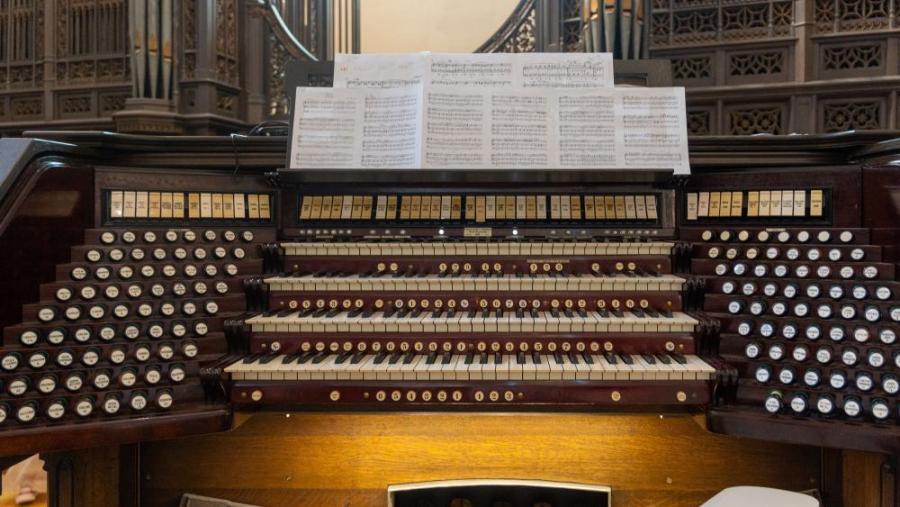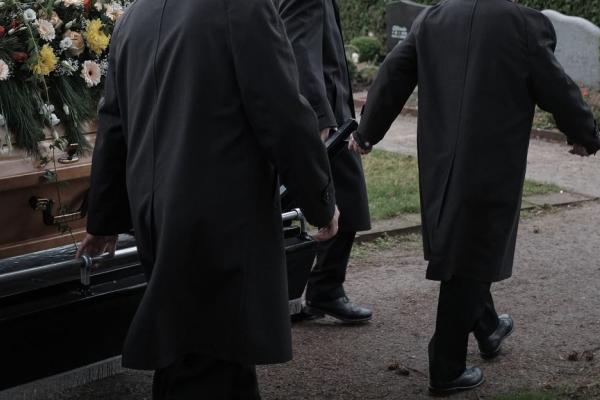
Music for funerals: How to choose the best songs
Music has a special power to evoke memories, convey emotions, and create an intimate atmosphere during the most important moments of life. In the context of saying goodbye, music for funerals plays a fundamental role, as it helps express feelings that often cannot be put into words.
Choosing the right melody may seem like a simple task, but in reality it requires profound reflection. It is not just about choosing a beautiful song, but about carefully selecting pieces that represent the deceased, accompany the family in their grief, and fit the type of ceremony.
In this article, you will discover the importance of music for funerals, the most common genres, and how to choose the songs that will make this moment a unique and meaningful tribute to that person.

What is the importance of music for funerals?
At funerals, music is not just an accompaniment. Its importance lies in several key aspects:
- Expressing emotions that are difficult to verbalize. Many times, sadness, gratitude, or affection for the deceased loved one cannot be put into words. A song can convey all this more deeply.
- Creating the right atmosphere. Music for funerals helps generate a space of reflection, calm, and respect. Even when grief is intense, an appropriate melody can bring serenity.
- Remembering the life of the deceased. A song that the person often listened to, a theme linked to their childhood, or shared moments can become a symbol of their memory.
- Accompanying the grieving process. Listening to certain musical pieces during the ceremony can be the first step in transforming pain into memory and keeping the legacy of the loved one alive.
In short, music for funerals is a tool of expression, comfort, and unity for families.
What kind of music is played at a funeral?
The choice depends on the type of ceremony and the personality of the deceased. There are different options that adapt to both religious and secular funerals.
Music for Catholic funerals
In Catholic funerals, music is usually linked to liturgy. Some traditional pieces such as Schubert’s Ave Maria or Pie Jesu are among the best songs for a religious funeral for their solemnity and spirituality.
Hymns such as Salve Regina or Nearer, My God, to Thee are also performed, evoking hope and accompanying the community in the farewell. The organ, choral singing, and solemn melodies are common, as they bring reflection and respect in the church or chapel.
In this context, music not only accompanies but elevates the Catholic ceremony, providing a transcendent sense of faith that comforts attendees.
Music for secular funerals
In secular funerals, families have greater freedom to choose. This is where emotional songs for a funeral come into play, reflecting the personality or tastes of the deceased loved one. It can range from a classical piece, such as Albinoni’s Adagio, to contemporary ballads that evoke special memories.
In this type of ceremony, personalization becomes essential. It is common to include songs for a funeral that speak of goodbyes, eternal love, or gratitude. Families may also choose songs that marked the person’s life: a bolero, a rock song, or even a cheerful piece that shows how much they enjoyed life.
The freedom of choice makes these funerals deeply human ceremonies, where music becomes an emotional portrait of the loved one.

Recommendations for choosing the most appropriate music for funerals
The decision about which melodies to include can be complicated, especially in a moment of grief. To make the process easier, here are some useful recommendations:
- Take into account the wishes of the deceased. If they expressed a preference in life, respect it. Sometimes a single song can summarize who that person was and what they wanted to convey.
- Adapt the music to the type of ceremony. In religious funerals, music must respect the liturgical character. In secular funerals, there is more flexibility, so modern pieces, instrumentals, or even special recordings can be included.
- Look for meaningful songs. The best songs for a funeral are not necessarily the most famous ones, but those that have a special connection to the family’s history.
- Balance emotion and serenity. Music should be able to move, but also accompany without overwhelming. The ideal is to alternate pieces that invite remembrance with others that provide calm.
- Consult with the organizers. Many funeral homes offer support in planning the ceremony and choosing from different repertoires. Among Áltima’s services, professional guidance is provided to ensure that the music is integrated appropriately into every moment of the tribute.
- Coordinate with musicians. If there will be a choir, soloist, or live musicians, it is advisable to choose songs that suit their repertoire. Live music adds an even more emotional touch.
- Consider personal recordings. Some families choose to include a recording made by the deceased or by a loved one. This can be a very intimate detail that leaves a lasting impression.
- Create a narrative thread. Organizing the music like a story helps give meaning to the ceremony. An opening piece of welcome, emotional songs in the center, and a final melody of hope close the tribute with coherence and sensitivity.
Examples of emotional songs for a funeral
Although each family should choose the pieces that best represent their loved one, there are songs that are often especially meaningful:
- Hallelujah – Leonard Cohen.
- Tears in Heaven – Eric Clapton.
- My Way – Frank Sinatra.
- Somewhere Over the Rainbow – Israel Kamakawiwo’ole.
- Time to Say Goodbye – Andrea Bocelli and Sarah Brightman.
- Amor eterno – Rocío Dúrcal, often chosen in Spanish-speaking funerals.
These are only references, since the most important thing is that the chosen songs have meaning for those who take part in the ceremony.


